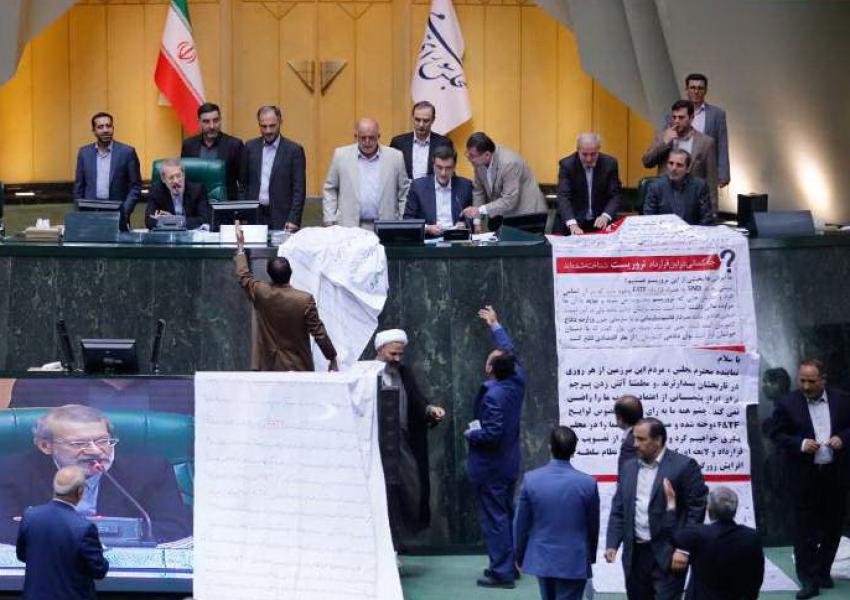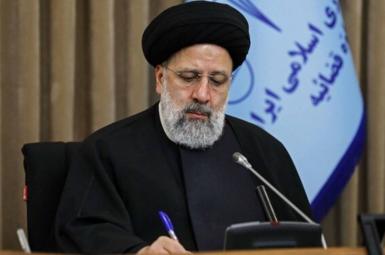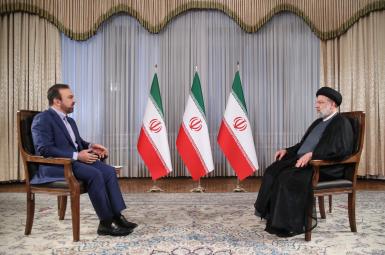
Will Raisi Grasp Thorny Issue Of International Financial Taskforce?
With Ebrahim Raisi taking office as president, many in Iran are awaiting a resolution of the thorny issue of Iran's accession to international financial watchdog, the Paris-based Financial Action Taskforce (FATF), a move that supporters argue would ease Iran’s problems in international trade.
Raisi’s incoming government, expected to be made up of hardliners and principlists, together with a similar parliament in power do not bode well for Iran agreeing to FATF conditions.
Iran has been on the FATF blacklist, along with North Korea, since February 2018 for failing to pass legislation introducing regulations designed to combat money-laundering, corruption, and financing of ‘terrorism.’ All FATF members – who host most of the world’s financial centers – are required to exercise enhanced diligence and counter-measures in dealings with blacklisted states.
Iran’s previous parliament passed the relevant legislation, but two bills have been stuck for two years at the Expediency Council, which arbitrates in disputes between state bodies, after they were rejected by the watchdog Guardian Council.
Raisi's government needs an agreement on the nuclear issue and approval of FATF accession to increase economic growth to 5 percent and lower inflation, Hossein Marashi, spokesman of the centrist Kargozaran (‘Executives of Construction’) Party was quoted by Eghtesad News (Economic News) as saying July 27.
Raisi's cabinet nominations − particularly the ministers of economy and foreign affairs – and their approval process in parliament may indicate the course his government will follow both over reviving the 2015 nuclear deal and FATF accession. Talks with world powers in Vienna on the nuclear issue were postponed in July pending Raisi’s arrival on office.
Given suggestions that the US is unwilling to remove sanctions Iran considers incompatible with the JCPOA, an early agreement seems unlikely. While the FATF did not surface as an issue during the presidency election, Raisi voted against early implementation of the protocols.
President Hassan Rouhani and his ministers complained that hardline rivals opposed FATF accession to increase the difficulties the government faced in managing the economy. "Our circumstances would have been better if two things had happened before March: An agreement [on the nuclear issue] and [accession to] the FATF," he said July 25 at the general assembly of the Central Bank of Iran.
It is only a “prophesy” that with Raisi taking over the presidency, the way is clear in all three branches of government – the parliament, presidency and judiciary for FATF accession, Hossein Kamali, labor minister under reformist Mohammad Khatami, told Khabar Online July 28. "What is going to happen is not predictable at all," he said.
Critics of FATF argue that accession would make Iran vulnerable to US sanctions and curb its ability to support allies, such as Hezbollah in Lebanon, which has also faced US sanctions.
Officials in the Rouhani administration and some reformists have also accused principlists of having a vested interest in practices used to circumvent sanctions. In a commentary Wednesday the reformist newspaper Etemad delivered its verdict under the headline "FATF, Gone With the Wind.”









